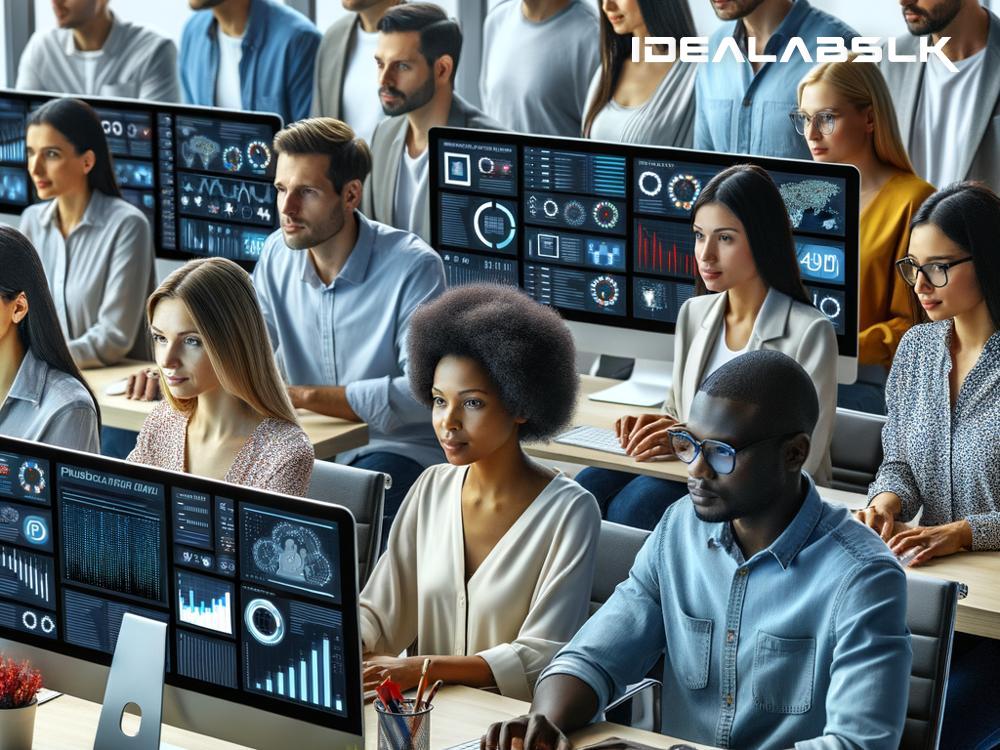Unlocking the Future: The Role of Predictive AI in Automated Campaigns
In the movie-like future we often imagine, robots and machines are typically at the forefront, making our lives easier and much more exciting. While we might not have flying cars just yet, we're already experiencing this futuristic dream in the marketing world, thanks to predictive AI and automated campaigns. Let's delve into how this technology is changing the game, making marketing more effective and personalized than ever before.
What is Predictive AI?
Imagine having a crystal ball that could tell you what your customers are likely to want or do before even they know it. That's predictive AI in a nutshell. It sifts through mountains of data to find patterns and predict future outcomes. When applied to marketing, it can forecast what products a customer might be interested in, the best times to reach out to them, and even the most effective marketing channels to use. It's like having your own marketing fortune teller.
The Power of Automation
Now, combine predictive AI with automated campaigns - systems designed to carry out marketing efforts automatically - and you've struck gold. This duo allows businesses to tailor their marketing strategies to each individual customer, ensuring that the right message reaches the right person at the right time, all without manual intervention.
Enhancing Customer Experiences
In a world where we're constantly bombarded with ads, standing out and providing value is more important than ever. Predictive AI makes this a lot easier by enabling hyper-personalized experiences. For instance, if you're someone who loves hiking, predictive AI can help businesses send you promotions for hiking gear at the beginning of the hiking season, making the marketing you receive feel more relevant and less intrusive.
Optimizing for Success
Predictive AI doesn't just guess; it makes informed predictions based on data. This means businesses can continually optimize their automated campaigns to achieve the best possible outcomes. If data shows that emails sent on Tuesday mornings have the highest open rates, the system can automatically schedule future campaigns accordingly. This ongoing optimization process ensures that resources are used efficiently, maximizing return on investment.
Real-Time Decision Making
One of the most exciting aspects of predictive AI in automated campaigns is its ability to make real-time decisions. For example, if a customer is browsing a website and showing interest in a particular product, the system can immediately send them a related offer or nudge, significantly increasing the chances of conversion. This level of responsiveness was unthinkable just a few years ago.
The Future is Now
While the thought of AI and automation might bring concerns about the "robots taking over," the reality is much less ominous. Predictive AI in marketing doesn't replace the need for human creativity and strategy; it enhances it. By automating repetitive tasks and crunching numbers at a scale no human can match, it frees marketers to focus on creative problem-solving and strategy.
Challenges and Considerations
However, the use of predictive AI isn't without its challenges. Privacy concerns are at the top of the list, with businesses needing to navigate the fine line between personalization and invasiveness. There's also the need for quality data; predictive AI is only as good as the data it analyzes. Ensuring that data is accurate, relevant, and unbiased is crucial for its success.
The Bottom Line
Predictive AI in automated campaigns represents a significant leap forward in how we think about marketing. It allows for unprecedented levels of personalization, efficiency, and responsiveness. As we move forward, the integration of predictive AI will likely become the standard, not the exception, in the quest to deliver more relevant, impactful, and successful marketing campaigns.
The future of marketing is not in trying to reach the most people, but in reaching the right person, with the right message, at the right time. Predictive AI is the key to unlocking that future, today. As marketers, embracing this technology is no longer an option; it's a necessity to stay competitive and relevant in the ever-evolving digital landscape.
In essence, predictive AI and automation are not just about making marketing easier; they're about making it smarter. So, as we look to the future, let's not be afraid of the robots. Instead, let's learn how to work alongside them to create marketing that's more personal, effective, and, ultimately, human.

